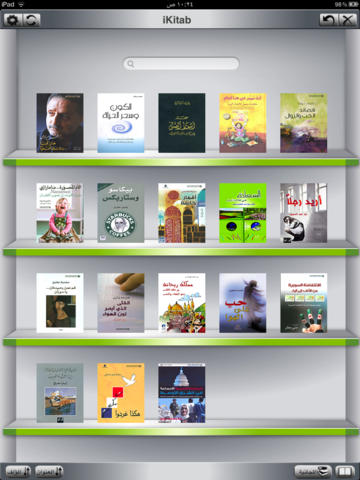Online (e)book sales in the Arab World: interview with Salah Chebaro (NWF)
E-commerce is booming in the emerging countries. In the Arab world, despite obstacles related to e-payments, piracy and logistics, the potential of online sales is considerable. This is our interview with Salah Chebaro, director and founder of Neelwafurat (NWF). The company is the largest online bookstore in the region and has recently started selling e-books.
What was your vision when you founded Neelwafurat?
The Neelwafurat (NWF) project is just like Amazon for printed books and for e-books. We started in 1998 and it has become the biggest online Arabic bookstore with nearly 450,000 unique items, mainly from Lebanon, Syria, Jordan, Egypt and Saudi Arabia. As far as e-books are concerned, we are trying to cover all the Arabic countries because we do not have the limitations of the borders and logistics. Our aim is to reach the Arabic readers both inside and outside the Arab world, with the most comprehensive catalog for Arabic books and e-books. We believe that we should provide our customers the best possible service and the best titles. Indeed, if we deliver e-books just like PDFs, people would not buy them because there is no value-added service.
We have a big piracy issue in the Arab world, so we have to make something unique – such as nice EPUB files. I know this is hard and difficult, but I really hope that we can build an alliance of international publishers in the world to combat piracy: this is a global problem that affects every link in the value chain, from the author to the publisher, the bookstore, the aggregator and the distributor, all the way to the reader. This is a challenge that really needs everyone’s cooperation.
Did you face any technical challenges in iKitab, concerning the Arabic scripts?
Actually, it was difficult to make our first e-book, especially as we had problems with the Arabic fonts. Arabic is not one of the top priorities for international companies, so even today Arabic is not supported on all tablets that use Android. At the beginning we had to implement some customized solutions for the fonts to appear correctly. For example, all the programs that would show you the EPUB file were left to right, so we had to flip the content from right to left.


Conversion was – and still is – another issue. Many Arabic publishers never imagined that what they were doing would go electronic one day, so all they have now is either films of books or, at best, PDF files – which are in most cases mere images of the books, but not text. All this forces you to apply OCR, and OCR in Arabic isn’t so accurate, so you have to spend a lot of time correcting the output manually. There is no out-of-the-box solution that you would buy and simply run. You would always have to implement customized solutions in order to solve the Arabic language specifics.
In order to solve those problems, who do you think should make the first move? Technological companies? Publishers? Governments?…
 Today you cannot really wait for governments to help you. Governments are interested in the big picture – they focus more on strategies. What we are doing is to build something that would work for us, benefiting from the fact that sell both books and e-books. We have statistics and feedback from the website – ‘please tell us which titles you would buy in electronic format’. Thanks to this data, we have ranked the best 1,000 e-books that people want, and we are now converting these titles as a priority. Therefore, we do not need to finance the conversion of 50,000 titles: we are starting with the books that are highly in demand. After doing these, we would go back to the next bunch and maybe later on do all the catalog.
Today you cannot really wait for governments to help you. Governments are interested in the big picture – they focus more on strategies. What we are doing is to build something that would work for us, benefiting from the fact that sell both books and e-books. We have statistics and feedback from the website – ‘please tell us which titles you would buy in electronic format’. Thanks to this data, we have ranked the best 1,000 e-books that people want, and we are now converting these titles as a priority. Therefore, we do not need to finance the conversion of 50,000 titles: we are starting with the books that are highly in demand. After doing these, we would go back to the next bunch and maybe later on do all the catalog.
Besides, we are trying to partner with entities within the Arab world that need to build electronic libraries and have the financial means to do it. What we are telling them is ‘OK, you want to build an electronic library for students, for universities, we can do this for you. We will also take these books and put them over the Internet for retail’. This is a win-win situation: since conversion would cost a lot, we are trying to create the demand for it first. We do not want to make conversion and then wait until the demand comes. This different approach helps us finance our big project.
As for electronic payments, how can you describe the current situation in the Arab region?
Online payments are getting better in the Arab world, though it has taken a long time to change the culture. Indeed, we have a tradition of not using credit cards, but over the Internet you need to use them. This said, today we face two issues. We have countries where people prefer not to use credit cards, even though their countries do provide them with the needed infrastructure. And we have countries which do not even provide the credit cards. Therefore, we have to implement new payment methods, for example Western Union or bank transfers. These are not the tools of the Internet age, but unfortunately, at some point you have to improvise in a region where you have 22 countries with 22 different systems.

